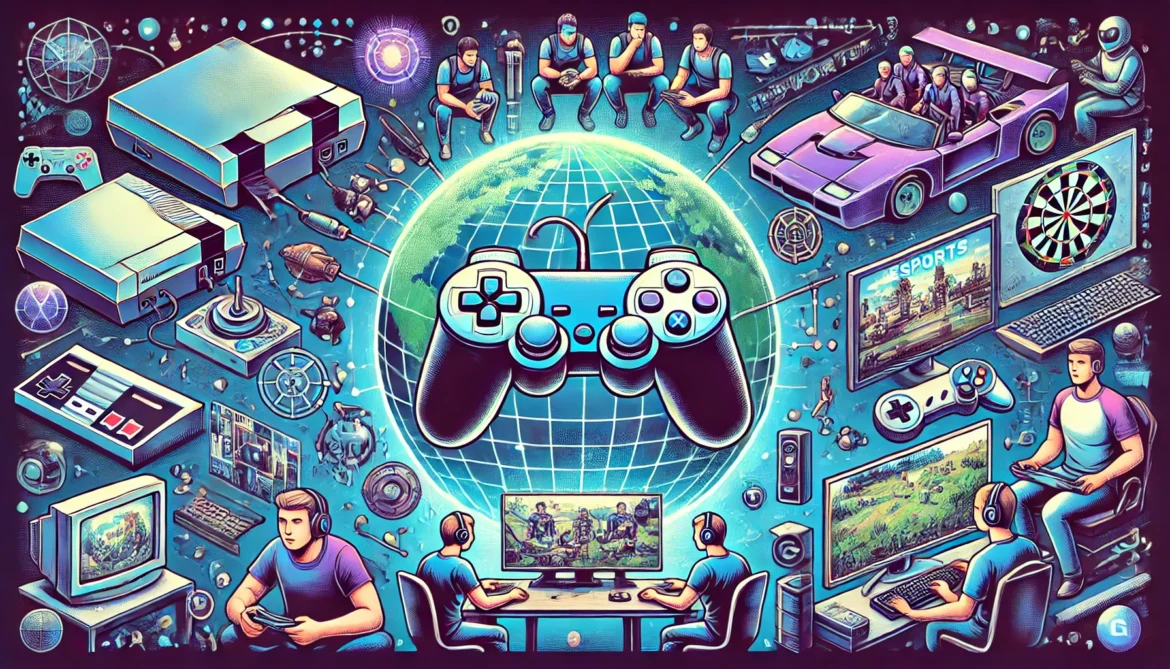Table of Contents
Online gaming has evolved into a massive industry. It started with simple text-based games and now offers complex, high-definition virtual experiences. With millions of players worldwide, online gaming isn’t just a source of entertainment anymore. It’s a cultural trend that shapes social interactions and boosts the economy.
In this article, we’ll explore different facets of online gaming, including its history, tech, social impact, and future trends.
History of Online Gaming
Online gaming began taking root in the 1960s and 70s with the creation of basic multiplayer games on mainframe computers. Early titles like Spacewar! and Maze War allowed users to connect and play together, laying the groundwork for this exciting industry.
In the 1990s, the internet became more widely available. This era saw the rise of Massively Multiplayer Online Role-Playing Games (MMORPGs) like Ultima Online and EverQuest. These games hosted thousands of players in connected virtual worlds, featured complex economies and social structures that thrived even when players were offline.
Today, the world of online gaming spans various genres and platforms. From mobile games to console and PC titles, and even cloud gaming services, there’s something for everyone. Popular games like Fortnite, World of Warcraft, and League of Legends have millions of active users, fostering lively communities and professional esports scenes.
Social & Economic Impact of Online Gaming
Online gaming became a powerful force for building communities among players. Gamers often form friendships from shared experiences, teamwork, and competition. This even led to the emergence of platforms like Discord and Twitch, which provide spaces for communication and content sharing.
Meanwhile, esports has taken gaming to a professional level, with tournaments, leagues, and teams competing for substantial prizes. Esports athletes, such as Kuro “KuroKy” Salehi Takhasomi from Dota 2 or Kyle “Bugha” Giersdorf from Fortnite, have become celebrated figures with millions of fans and significant sponsorship deals.
This is not to mention the economy boost via numerous job opportunities, spanning game development, design, marketing, customer support, esports management. Plus, many online games host intricate in-game economies, enabling players to buy, sell, and trade virtual goods and services
What Could Go Wrong in Gaming
However, it’s not all so perfect. A big worry with online gaming is addiction. Playing too much can cause physical and mental health problems, like sleep issues, anxiety, and depression. It’s crucial for gamers to balance gaming with other activities.
Developers should also add features that promote healthy habits. For instance, games like Fortnite now include reminders to take breaks and limit screen time.
Toxic behavior and harassment are also, unfortunately, still common in online gaming. Game developers and platform providers need to set and enforce strict codes of conduct. They should also offer tools for reporting and managing abuse.
Future Trends in Online Gaming
Cross-platform play is becoming more common, letting gamers on different devices compete in the same games. For example, Fortnite allows players on consoles, PCs, and mobile devices to play together seamlessly.
AI and machine learning are set to transform game design and player experiences. These technologies can make NPCs (non-player characters) more responsive, create dynamic content, and personalise gaming based on your behavior. Games like Red Dead Redemption 2 already use AI to create lifelike NPCs.
Blockchain technology and non-fungible tokens (NFTs) are yet another new trend in online gaming. They open up new possibilities for ownership, trading, and monetising digital assets. Axie Infinity is a prime example, where players can own and trade unique digital pets.
Technological advancements will keep blurring the lines between virtual and real worlds. Future games are expected to offer more realistic and immersive experiences, with innovations in haptic feedback, spatial audio, and environmental interaction.
Final Thoughts
The evolution of online gaming has transformed it from humble beginnings into a complex and influential industry, shaping technology, society, and the economy. With continuous advancements, the rise of professional gaming, and secure payment gateway for online gaming, the future looks promising for this dynamic sector.
However, it’s crucial to tackle the accompanying challenges like addiction, cybersecurity, and toxicity to ensure positive and sustainable growth. For instance, implementing robust cybersecurity measures and promoting healthy gaming habits are essential steps.
As innovation and expansion persist, online gaming will undoubtedly continue to be a significant cultural and economic force. Addressing these issues head-on will help maintain its momentum and positive impact.









